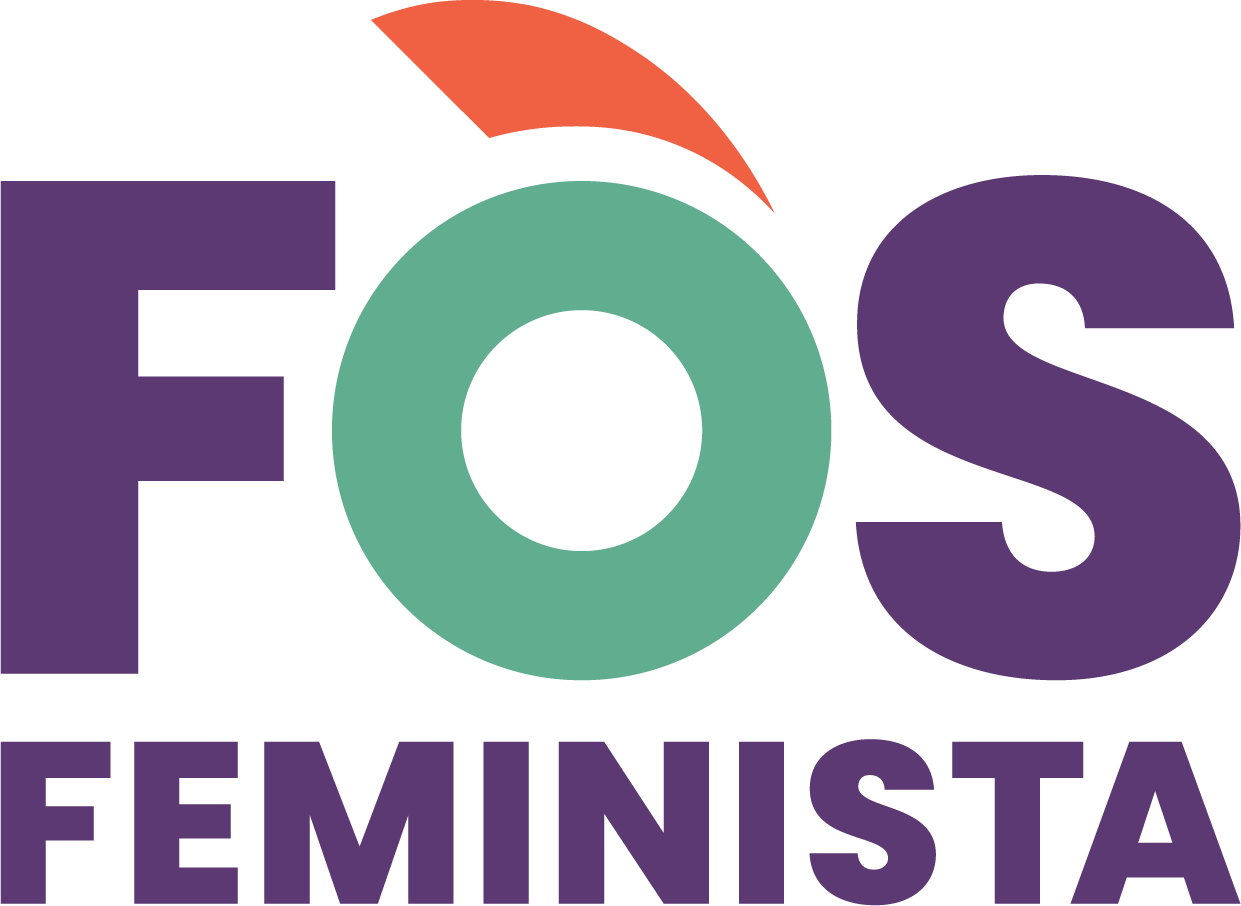
Between May 19 and 21, 2023, Japan hosted the 47th G7 Summit in Hiroshima, Japan. The following is a blog in response to the G7 Hiroshima Leaders' Communique, Health Ministers Communique, Promoting Gender Mainstreaming through the Nexus Approach, and the Nikko Statement, providing analysis using a framework grounded in sexual and reproductive health and rights.
This year’s G7 Summit in Japan offered the world’s leading economies an opportunity to address today’s global challenges. By proactively listening to feminist collectives and movements and by adopting concrete political & financial commitments, G7 leaders can achieve tangible, lasting, and transformative change in the lives of women, girls, and persons of diverse sexual orientation, gender identity, gender expression, and sex characteristics (SOGIESC) in 2023 and beyond.
G7 HIROSHIMA LEADERS COMMUNIQUE
Aspects of appreciation:
Fòs Feminista appreciates the repeated references to “gender transformative change” and “substantial transformation of our societies” throughout this year’s Leader’s Communique (the Communique). The reality is that women, girls, and gender-diverse people experience multiple and intersecting forms of violence and discrimination on the basis of gender, race, ethnicity, disability, income status, age, migration status, HIV or health status, etc., and often in the hands of systems of oppression intentionally created to perpetuate harm against marginalized communities.
To truly achieve “gender transformative change,” G7 leaders have the responsibility to acknowledge their (continued) contributions to inequities and must challenge themselves to actively disrupt systems of oppression.
Notably, “2023 is the halfway point to achieve SDGs.” Yet no G7 has achieved gender equality or even ranks in the top 15 of the Equal Measures 2030’s SDG Gender Index. We appreciate the G7 leaders acknowledging this halfway point amidst “the rollback of women’s and girls’ rights” and their condemnation of “all violations and abuses of human rights and fundamental freedoms for women and girls and LGBTQIA+ people around the world.”
The imminent SDG Summit between September 19 and 20, 2023, serves as the optimal moment for G7 leaders to not only reverse the setbacks of progress on SRHR but to catalyze and strengthen their commitment to the SDGs, particularly SDG targets 3.7 and 5.6, which specifically commit to achieving universal access to sexual and reproductive health services and reproductive rights:
Opportunities for growth:
While Fòs Feminista welcomes aspects of the Leaders Communique, we remain disheartened over the glaring gaps and missed opportunities in creating concrete commitments and securing funding and plans for implementation to proactively address losing 30 years of progress on gender equality.
For instance, under the commitment to “advancing and defending gender equality and the rights of women and girls in all their diversity, at home and abroad” by “working together to thwart attempts to undermine and reverse hard-won progress in this area” there is no mention to LGBTQI+ people or follow up to how this will be achieved. Reversing backsliding requires G7 leaders to go beyond rhetoric by creating an action-forward plan to assess and disarm the harms of the anti-rights, anti-gender, and anti-democratic movement(s).
The recent passage of the Anti-Homosexuality Act in Uganda is just one woeful example of the anti-rights movement. Criminalizing individuals based on their identity is not only a human rights violation but also an affront to SRHR. Discriminatory laws and policies like the Anti-Homosexuality Bill halt progress on public health efforts to address endemics like HIV and AIDS, increase morbidity and mortality, and ultimately harm the entire society.
G7 leaders should back their commitment by creating legal protections for the most marginalized and by providing sustainable funding to feminist collectives and LGBTQI+ rights groups – often the canaries in the coalmine – to counteract the growing and consistent attacks of these actors.
Alongside counteracting regressive voices, G7 leaders must go beyond their call of ensuring “access to safe and legal abortion and post abortion care” by calling for the decriminalization of abortion globally — a recommendation endorsed by the World Health Organization’s recent Abortion Care Guideline.
Since 1994, only four countries, including the United States, have removed legal grounds for abortion, while 59 countries have liberalized their abortion laws to expand the grounds for legal abortion, shedding colonial legacies that limit reproductive freedom. The Dobbs decision puts the U.S. on the wrong side of this trend, leaving more than half the country without access to safe, legal abortion. The implications are dire for Black women in the U.S., who seek abortion at higher rates and disproportionately live in states in the U.S. where abortion is banned.
Recent research from Fòs Feminista shows that the Dobbs decision is being seen as a continuation of anti-abortion policies coming from the U.S. and is having a global impact on policy, advocacy, legislation, public narrative, and movement building. To deter these anti-rights efforts, G7 leaders should commit to repealing both domestic existing regressive anti-abortion policies and discriminatory laws and those that extend throughout their respective foreign policies and continue to hold each other accountable.
Of equal importance, G7 commitments to address, reduce, and redistribute unpaid care and investments in care infrastructure fall short, since they fail to acknowledge care as a public good and assume their crucial role in the provision of care and other public services. Of the social services mentioned, such as parental leave and childcare support, not all are guaranteed within the G7 countries – a striking irony. Women and girls carry the lion’s share of unpaid care and domestic work, restricting their ability to access comprehensive SRH services easily. Furthermore, no guaranteed paid parental leave means birthing parents lack the economic security that’s often required to adequately take time off to heal from birth, bond with their child(ren), and nurture their families.
We urge the leaders to increase funding for social infrastructure and gender-transformative health and care services by an additional 2% of GDP to improve the quality of services, reduce women’s disproportionate unpaid care loads and provide more decent work in sectors dominated by women. Furthermore, any social protections rendered by the state must include informal sector workers like sex workers, undocumented and stateless people, and all at grave risk of losing their livelihoods and falling deeper into poverty without any support.
HEALTH MINISTERS COMMUNIQUE
Within the Health Ministers Communique, Fòs Feminista is pleased to see universal health coverage (UHC) listed as one of the three priority areas, with sexual and reproductive health services noted as “an essential part of UHC.” If anything, COVID-19 revealed the vital need for UHC to transcend borders to ensure no one is left behind or denied access to essential healthcare services. Furthermore, as a cornerstone in UHC, SRHR remains under threat in the face of attempted rollbacks. We applaud the G7 leaders’ commitment to advocating “for the inclusion of the comprehensive SRH services as an essential part of UHC at the PHC level,” and we are pleased to see the creation of the G7 Global Plan for UHC Action Agenda, an annex that can serve as a roadmap to realizing UHC. We are eager to see the G7 leaders advance both efforts ahead of the high-level meeting on UHC at the General Assembly this September.
GENDER MINISTERS STATEMENT & NEXUS APPROACH
Fòs Feminista welcomes the adoption of the Nikko Statement (the Statement) at the Gender Equality Ministerial Meeting, which took place between June 24 – 25 in Nikko, Japan. The Statement recognizes many realities and challenges currently facing women and girls in all their diversities and LGBTQI+ people, like the surge in conflict-related sexual and gender-based violence as a result of the war in Ukraine, control of power by the Taliban in Afghanistan, and the human rights violations and abuse in Iran.
Just like the Leaders Communique, the Gender Statement includes: references to the state of gender equality globally; women’s economic empowerment; addressing, reducing, and redistributing unpaid care and domestic work; addressing sexual and gender-based violence, including in digital spaces; advancing sexual and reproductive health and rights.
Of all the statements, we were pleased to see a commitment to the publication of the first Implementation Report this year, which aims to describe the status and progress of past G7 commitments.
That said, releasing the first Implementation Report was, unfortunately, the only commitment out of the Gender Ministerial Meeting. In the face of increased and constant attacks on our bodies, Fòs Feminista would have liked to see the Gender Ministers create bold and concrete commitments, actions, and resources they could take forward.
Similarly, while we welcome the debut of “Promoting Gender Mainstreaming through the Nexus Approach (The Nexus),” a factsheet intended to bridge policies relevant to gender in all political/security, economic and social dimensions, we fear the Nexus approach lacks concrete commitments, including financial commitments, and tangible, targeted actions. In essence, the Nexus remains ambiguous, without direction, and mostly underpins current commitments and policies – without any evidence of progress–missing the opportunity to galvanize commitments even further to advance gender equality.
Finally, we await updates on the G7 Gender Gap Dashboard, an accountability mechanism published under the German Presidency in 2022, to ensure transparency, accountability, and impact on G7 commitments. While overdue, we hope the dashboard is updated in such a way as to demonstrate the progress or lack thereof on existing commitments.
RECOMMENDATIONS FOR THE UNITED STATES GOVERNMENT:
As a G7 leader and the world’s largest contributor to global health, the United States has significant power and influence, which should be used to go beyond alleviating global challenges at home and abroad. The following are the areas of relevance identified by Fòs Feminista where efforts should be targeted to realize “substantial transformation”:
- Increase direct funding to feminist and women’s rights organizations operating in countries/regions receiving foreign assistance.
- In line with the commitment by USAID Administrator Samantha Power to dedicate 25% of programming funds to local partners by FY25, ensure at least 20% of these funds is directed towards feminist and women’s rights organizations.
- Promote universal access to and financing for comprehensive, accessible, affordable, and good-quality health services, including sexual and reproductive health services, for women, girls, and gender-diverse people. Primarily by:
- Permanently ending the Global Gag Rule through legislative action;
- Repealing the Helms Amendment and committing to veto legislation that extends, reiterates or incorporates the Helms Amendment;
- Increasing funding for international family planning and reproductive health programs at no less than $1.74 billion for FY24;
- Reauthorizing the President’s Emergency Plan for AIDS Relief (PEPFAR);
- Reaffirming full commitment to SRHR based on international agreements, particularly at the 30th anniversary of the International Conference on Population and Development (ICPD) Programme of Action and the Beijing Platform for Action;
- Reducing barriers to medication abortion and decriminalizing self-managed abortions by ensuring that the federal criminal code cannot be used to prosecute people for self-managed abortion;
- Addressing the increasing maternal mortality rates in the United States, particularly for Black women, by passing legislation to save moms’ lives and address every driver of maternal mortality, morbidity, and disparities;
- Guarantee paid federal parental and family leave to alleviate economic burdens, reduce health disparities, and ensure better health outcomes for all families.
- Reaffirm the fundamental role played by nongovernmental organizations, particularly feminist and women’s organizations and movements, and promote exchanges and partnerships between these organizations to ensure successful implementation of current and future G7 communiques.
By prioritizing gender equality, women’s rights, and comprehensive sexual and reproductive health and rights in all foreign policy efforts and initiatives, the U.S. government can help ensure that women’s rights are at the center of all diplomatic and multilateral efforts, effectively embracing SDG5 and the vision of the National Strategy on Gender Equity and Equality.
…
Rooted in the needs and lived experiences of people in the Global South, Fòs Feminista will continue to engage with the G7 Summit and use the abundance and diverse knowledge we have as an alliance on gender equality and sexual and reproductive health, rights, and justice worldwide to inform future G7 processes and communiques.






